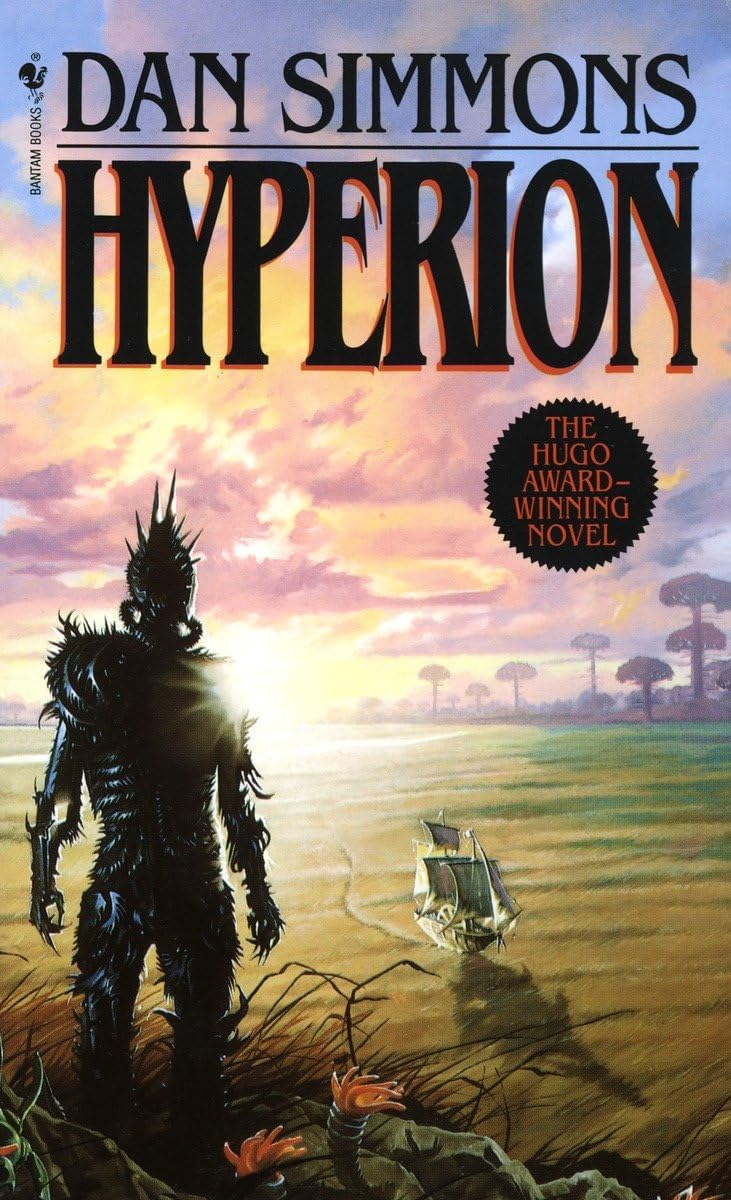As of Jan 17th, I have finished my first book for the year!

Hyperion is one of those classic science fiction books that, if you enjoy sci-fi, someone has surely mentioned before. I had been recommended it several times, and finally sat down to read it over my Christmas holidays and the start of January.
Published in 1989, there are definitely some writing conventions that more modern authors don't use anymore... So if you're used to a lot of action and immediate payoff, you're probably going to bounce off of this book. There are some parts of this book where payoff is deep, deep into the story. And for me, that was just fine - one of my favourite fantasy series of all time is Malazan book of the Fallen, which is very well known for being a dense read where sometimes a plot point isn't resolved until an entire 1200-page book or two later. So Hyperion making me wait to connect some dots and see a payoff isn't a problem.
Hyperion is interesting in that most of the story unfolds as stories within the story. We follow six pilgrims, who each retell a story about why they're headed to this specific planet and the mysterious Time Tombs. As each tells their story, we get a deeper understanding of not just the world, but also why these six people are important, and possibly so important that they change the future. I have some suspicions on that front which I'll have to read the next book in the series to see if I'm right about.
Overall, I really enjoyed this book. I think I'll end up reading more of the series because I really want to know what the Time Tombs are and most of that doesn't get explored in this first book. I don't honestly know if I'll read the entire Cantos, as the series is I think 4 books total, but the first one impressed me enough that I'll likely read the second one later this year. I have a few other books also on the go right now so it won't be back-to-back.
There are a few great concepts in this book, like the Web - which is a nexus of planets connected by Farcaster technology (basically teleportation gates). The technology is so advanced that some very rich people have homes "within the web" which means that to THEIR perception, their home is just like any other home, but it could have rooms looking out over a dozen different planets - doorways that open to streets on entirely separate worlds. It's a very neat concept that has a lot of cool implications.
The Time Tombs, which is where the main characters are on a pilgrimage to, are strange artifacts that exist only on the titular world - Hyperion. They seem to have been sent backwards through time, and nobody is really sure what they do or what they contain, which is a major point in the book as we read through it. Protecting these is a strange creature called the Shrike - a metallic-like possibly organic being that is said to grant a wish to pilgrims who visit the Church of the Shrike... but it also kills folks all the time so it's a bit of a tossup if you'll actually get your wish or if you're going to head off to your own death.
Maybe, you get both.
In Hyperion, we don't get a direct answer to these questions... but we arrive where we need to be for the next book - Fall of Hyperion - to answer those questions, and I'm definitely going to be revisiting this to do just that.

Join the Worldbuilding Community!